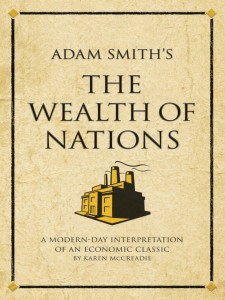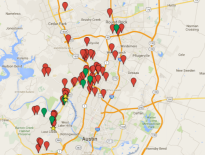
Love this question as I think it’s far more important than people realize.
People don’t like their time wasted. We have no problem wasting our own time but waiting in line, sitting at an unproductive dinner with coworkers, being unable to find a capable employee at Home Depot… people hate having their time wasted.
What does that possibly have to do with this question?? The United States, and the rest of the world for that matter, is increasingly freelance, work from home, and entrepreneurial (those three things not necessarily being the same). This evolution has been happening for decades; more and more people are working on their terms, realizing that companies really have no loyalty to them, thanks to the death of the pension and the rise of the Affordable Care Act in the United States. This is readily more apparent in the Millennial generation which is well known for their distinct work ethic.
As John Brandon shared on behalf of BetterWorks‘ Ciara Peter, in Inc., “‘work-life balance’ is being replaced by ‘work-life integration.'” In the new work economy, people want to be a part of the mission, understand why, and have fun. People want work to be a reflection of who they are, and vice versa, rather than where they clock in to pay for a mortgage. Thus, while the Millennial generation is causing the trend to explode, the desires and expectations of the Millennial generation are really just a reflection of where we’re heading; how everyone wants to work – other generations simply had different economies, cultures, and societies in which they grew up, prompting Millennials to be more comfortable embracing the fact that we should be able to work on our terms and that companies aren’t loyal to us, therefore why should we be loyal to them.
Article Highlights
Still, I’ve not made my point 🙂
People work best alongside of others who share the same philosophies. It’s not skills nor experience that matter but WHY we work. When building a startup team, considering a job, or managing clients, what you do and how well, is a simple 1+1 equation that determines if you are a fit. Whether or not you can create magic together, dare I say synergy, is the result of thinking and behaving similarly.
In the startup community, the word “entrepreneur” is as misunderstood and misplaced as “angel investor” and that misalignment challenges everyone. We are forced to waste time.
- Entrepreneur
- Founder
- Business Owner
- Inventor
- CEO
- Chairman
- Director
- Principle
- Partner
Those are all terms used to describe someone who is leading their own business. But they aren’t terms that should be used interchangeably as they don’t mean the same thing!
Challenging us all is that in our new economy, everyone wants to be an “entrepreneur,” as it’s the term that embodies the characteristics of that new work-life integration. But are we really all becoming entrepreneurs? Is it in our best interest to consider us so, when an entrepreneur is very very different from a founder, someone very different from an business owner?
More importantly, how can we possibly network, partner, and work with similarly minded professionals, leveraging synergy, when regardless of what we call one another, the needs of an Entrepreneur are VERY different from the needs of a Founder, business Owner, CEO, or Partner?
What is an Entrepreneur?
Traditionally, an entrepreneur has been considered a person who organizes and operates a business or businesses, taking on greater than normal financial risks in order to do so.
 The term entrepreneur was coined by an admirer of Adam Smith’s book, The Wealth of Nations (which I’m presuming, nay, hoping you know). Entrepreneur is a French word coined by the economist Jean-Baptiste Say, and usually is translated as, “adventurer”. Say studied Smith’s book and, while agreeing on all points, found that the omission of enterprising businessmen was a serious flaw. Yes, Adam Smith’s The Wealth of Nations, one of the world’s first and arguably founding works on what builds nations’ wealth, neglected to consider the entrepreneur. (kind of makes you second guess the importance of doing a startup doesn’t it?)
The term entrepreneur was coined by an admirer of Adam Smith’s book, The Wealth of Nations (which I’m presuming, nay, hoping you know). Entrepreneur is a French word coined by the economist Jean-Baptiste Say, and usually is translated as, “adventurer”. Say studied Smith’s book and, while agreeing on all points, found that the omission of enterprising businessmen was a serious flaw. Yes, Adam Smith’s The Wealth of Nations, one of the world’s first and arguably founding works on what builds nations’ wealth, neglected to consider the entrepreneur. (kind of makes you second guess the importance of doing a startup doesn’t it?)
Say pointed out that it was entrepreneurs who sought out inefficient uses of resources and capital and moved them into more productive, higher yield areas. Entrepreneurs seek opportunities for profit and, by doing so, create new markets and fresh opportunities.
Why are there inefficiencies in semantics?
I’ll put a claim out there, and this is all open for discussion so call me out, I am an entrepreneur. Now that’s not me saying, “Ha! I’m an entrepreneur and you’re not!” I am not a small business owner. Certainly not yet a successful one. I’m not a startup founder. I’m not a CEO. As an entrepreneur, I have unique needs and contributions to the economy that are no better nor worse than, but different from other business leaders. I actively seek inefficient uses of resources and capital and move them to other better performing areas. I seek profit, as we all do, but I am particularly interested in new markets and fresh opportunities; as opposed to working for corporations or traditional small, or local, business. I’m involved in a dozen different things including this blog, consulting, advising, investing, and yes, founding a couple of things of my own; in which context, I am a startup founder OR business owner – I’m the founder of a new disruptive technology (yet to be released) and I’m the owner of a t-shirt store and a neighborhood event calendar.
Networking with CEOs, business owners, etc. is personally and socially enjoyable but rarely, therein, is synergy found as the needs, expectations, and work ethics of a CEO or business owner are very different from that of a startup founder or entrepreneur. Not right nor wrong, better nor worse, just different. When we mince words, people’s time is wasted; an entrepreneur at a small business networking event will find themselves having to seek out the distinct individuals there who are also entrepreneurs and not merely Realtors, Accountants, Freelancers, Restaurateurs, and t-shirt shop owners.
Challenging us further is that beyond Silicon Valley, this classification doesn’t naturally occur. In the Valley, startup Founders are rarely mingling with business Owners at and event for “entrepreneurs.” My thesis is that this is because of costs and the investments required to do business there. If you are a startup founder, in N. California, you are fully dedicating 168 hours a week and your own, and others’, capital and time, in a venture that will likely fail and is certainly a new market or fresh opportunity. That’s not, with all respect to such professionals far more successful than I (and most startup founders), a Realtor or Lawyer whom certainly take on great risk and work just as much, but aren’t practicing a new market or disruptive opportunity.
Are you involved in businesses, taking on greater than normal financial risks in order to do so?
Finding joy in life, and work, is not about doing what you love but doing that which is a reflection of who you are. Your philosophies, more than what you enjoy and in which you excel. We increasingly believe we all want to be entrepreneurs and fundamentally, there is a ring of truth to that. What we really want is more control of our path: greater work-life integration. But that doesn’t mean being an “Entrepreneur,” perhaps you are a business Owner, Founder, or destined to be CEO. Be and do who you are and you’ll never retire. Work alongside those who embody what you are and you’ll never fail.



Good read. After reading this I think unlike the term “adventurer” better than entrepreneur (for me anyway).
Brilliant observations. we’ve been having this very discussion in St. Louis where everyone considers themselves an entrepreneur. Not accurate, not helpful. Interesting side remark about Angel Investors. Here they behave more like VCs
Why would you criticize people’s entrepreneurial spirit?? Due respect, I think I see what you’re driving at but at the end of the day, anyone in business for themselves is an entrepreneur. It’s a lifestyle, not a job title.
Good perspective Mark. No on is criticizing people’s spirit. The point is that you can’t call a spade a spade if it’s not a spade.
What I’m driving is how the misconceptions create inefficiency. Let’s stick with the deck of cards: If you’re playing Spades with your friends and you can’t tell if the clubs are clubs or the spades that you need… how can you play??
Neil Patel wrote a great article in Entrepreneur this week https://www.entrepreneur.com/article/249675. His gist, you are NOT an entrepreneur if:
1. You prefer following orders
2. You prefer working to fulfill someone else’s dream.
3. You don’t like hard work.
4. You get along great with everyone in your life.
5. You see everything in the world as being just fine.
6. You feel very mainstream. (And you love it.)
Four through Six are where the rubber hits the road as in fairness, great professionals, business owners, CEOs, and partners work hard and even work with other people’s dreams or expectations. Entrepreneur rock the boat, they never thing things are just fine – they need to be disrupted!
I think that, while (4) thru (6) are where the rubber hits the road, they are connotative of the spirit of entrepreneurship in business, not denotative. (1) and (2) fully establish, denotatively, what entrepreneurship is not.
Great post and timely- as I’m doubting why I left my job and started a risky new business venture . I guess I like getting things disrupted !
Work Life Integration is a great expression. Most people these days will probably not retire by 65, their retirement was intermingled into their everyday lives over the years. Breaks to Starbucks, sleeping in late…very different than the careers our parents had.
Thank you for helping with this vast thinking error.
I hope budding business people read your answer. Entrepreneur is such a wonderful term. It imbues it’s holder with an air of mysticism and wonder. Once a degree of business success has been achieved, one becomes just a business person. A few become business innovators and visionaries. They are not motivated to do what has been done before. They allow us to move forward.
I generally go by Drucker: “…an entrepreneur as one who always searches for change, responds to it and exploits it as an opportunity. Innovation is the specific tool of entrepreneurs, the means by which they exploit change as an opportunity for a different business or service.”
Paul O’Brien this is an excellent explanation. Identifying personally with so much of what you said. Great stuff my guy. Love it!
Carla Viegas. This would be great for the next podcast.
Paul O’Brien ?double edged sword